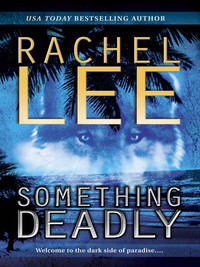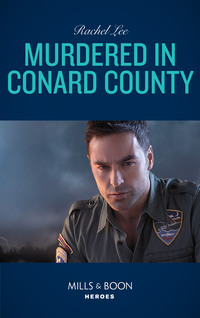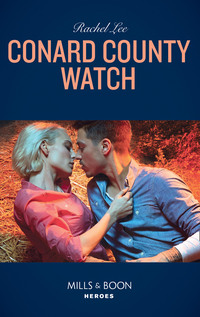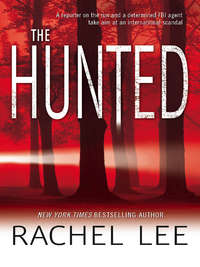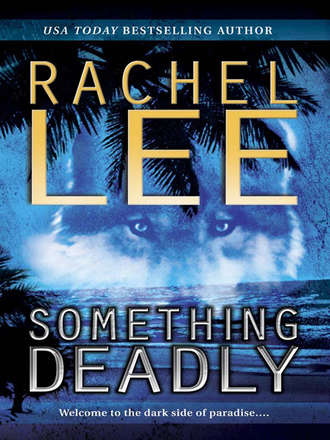
Полная версия
Something Deadly

He was racing to kill the woman he loved.
Dec’s heart beat heavily with anxiety and fear. He heard the mournful howl from the back of the house. He realized as he rounded the corner of the house that she was no longer the woman he loved.
She had been taken over by evil.
He pulled the vials out of his pocket and drew a cc of tetradotoxin into the syringe. He watched her, standing in the middle of the yard, arms thrown wide in celebration and triumph.
She was a stranger looking back at him with Markie’s eyes.
“Hi, honey,” he said, smiling as he had always smiled when they met.
Markie felt the darkness inside her try to force her to reach out and hurt…. “Dec…”
He leaped at her, knocking her to the ground. He dropped to his knees beside Markie, beside the love of his life, whispering, “God help me…I’m sorry….” He plunged the needle into her arm and rammed down the plunger.
Markie grew still. Dec felt for her pulse.
It was gone.
Something Deadly
Rachel Lee

Contents
Prologue
Chapter 1
Chapter 2
Chapter 3
Chapter 4
Chapter 5
Chapter 6
Chapter 7
Chapter 8
Chapter 9
Chapter 10
Chapter 11
Chapter 12
Chapter 13
Chapter 14
Chapter 15
Chapter 16
Chapter 17
Chapter 18
Chapter 19
Chapter 20
Chapter 21
Chapter 22
Chapter 23
Chapter 24
Chapter 25
Chapter 26
Chapter 27
Chapter 28
Epilogue
Prologue
Shadow smelled it first. He lay on the living-room floor at his owner’s feet, sprawled on his left side with a rawhide chew bone a whisker’s length from his nose. He’d worked the knot for a while earlier, massaging his gums, as close as he was likely to get to the satisfaction of gnawing fresh, warm meat from the bones of a kill. Now the comforting scents—the half-chewed bone; the master’s feet wrapped in old leather slippers; the rug still rich with the aroma of pipe tobacco, though the master had long since stopped smoking; beef and potatoes and carrots and red wine in the pot on the stove; the barest remnant of the master’s wife’s perfume, even though she’d gone out the door; the salt air that was ever-present; loam on the master’s slippers from the garden; the varied and precious scents of Shadow’s world—were displaced by something else.
He drew in the air in quick, rapid sniffs, emptying his lungs when he could hold no more, repeating the process again and again, focusing, letting his agile mind filter out the familiar to pinpoint the new odor. Cold. Earth. Must. Decay. Chill. Death. Evil.
Woof.
One quick noise, as much to chase the horrid scent from his nostrils as to alert the master. But the smell would not leave. The growl grew low in his chest as he rolled onto his haunches, not yet standing, still sampling the air.
Go away!
“What’s wrong, buddy?”
The master’s voice, so soothing with its deep rumble, barely reached his mind. In a smooth, graceful motion, he rose and trotted to the front window, his nose still foul with the air. Couldn’t the master smell it? Probably not. The master and his wife missed so much of the world.
His pupils widened as he approached the glass, beyond which lay the dark world, full of the rising scents of nighttime. But they held no interest. It was there. It was right out there.
Arrf-arr-arr-arr-arr-arrf!
Begone! This is my master’s home! You may not enter!
If it heard him, or understood, it paid him no heed. But his friends in the other houses heard, and understood, taking up the cry.
“What, Shadow?” the master said, now at his side.
Shadow looked up at him, then out the window again, growling an angry warning as it approached.
“There’s nothing there, boy! Stop that racket.”
The master couldn’t see it? Of course he couldn’t smell it, but couldn’t he see?
ARR-ARR-ARR-ARR-ARRUFF-ARR-ARR-ARRUFF-ARRUFF!
No! You can’t have him! I will die before I let you near him! Begone! Evil! Danger!
Shadow looked up, his teeth bared, as it came through the glass—how could that be?—and leapt up at it, snarling and snapping, clawing at it and finding nothing.
“Calm down, boy!” the master said, though his scent now held the tiniest inkling of fear.
Be afraid, Master! Run!
Shadow grabbed the cuff of his master’s pants and pulled.
Run! Please!
The master reached down to push him away. Noooooo! Shadow made one last lunge, then turned to the foul horror that seemed to stab at his nostrils like the quills of a porcupine and let out a savage growl, leaping between it and the master.
But it passed right through and into the master’s body, now curling and ripping inside him. The master crumpled to the floor. Shadow pushed at him with his firm nose.
Fight it!
He pawed the master’s arm, then his face, carefully, so that only the soft hairs between the pads of his paw touched the skin.
Don’t go!
But the awful evil would not be deterred. With a horrible, joyful cry, it tore something deep inside. Shadow heard the ripping sound and saw the light go from his master’s eyes.
Noooooo!
But the master’s spirit wouldn’t listen. It floated up and off, leaving nothing but the limp husk on the floor. Sated, the evil left, though Shadow was only dimly aware of its leaving.
The master’s spirit was gone.
No more morning walks to talk to Shadow’s neighbors.
No more of his rough hands behind Shadow’s ears, working fur and skin and flesh as joy danced in Shadow’s heart.
No more easing his feet into the slippers to settle in for dinner with his wife.
Shadow turned his nose to the heavens and howled at the master’s soul.
Please don’t leave me!
Please don’t leave!
Please don’t!
Please!
1
Kato wanted to take a walk. The barking of the neighborhood dogs a while back had seemed to unsettle him. Kato, more wolf than Siberian husky by nature, temperament and appearance, often paced for hours, mimicking the forebears who traveled thirty or forty miles a day through the woods.
Thanks to his husky sire, Kato was smaller than the ordinary wolf, only about eighty pounds. But he had inherited the long legs and huge paws of his wolf mother, as well as coal-black coloring and tawny eyes. There was no mistaking his maternal heritage.
Markie Cross, his owner, kept him only by virtue of the fact that she was a veterinarian and there was no local law against wolf hybrids.
But a half hour ago, the neighborhood dogs had burst into a frenzy of barking. Kato hadn’t joined them, but Kato rarely barked. He sat at the sliding glass doors that opened onto the back lanai and stared out into the darkness, listening to the cacophony of yaps and woofs that seemed to come from every direction.
Markie hardly paid it any mind at first. As always, it had begun with a lone dog in the distance and steadily spread, until all the dogs outside their homes were engaged in the chorus.
But as the sound built, she realized she was feeling a shiver of unease. It didn’t sound like the usual howl-fest that dogs would start and stop for no reason other than sociability.
Finally she looked up from her book and paid full attention. These were definitely barks of warning.
She glanced at Kato, her closest connection to the canine world, but he was sitting with his back to her, staring out the glass doors. He didn’t join the chorus, nor even move as if he were impatient to be out there howling along.
He simply sat, his ears pricked. Staring at something she couldn’t see.
Shortly, the dogs fell quiet again. Kato stayed at the window for a while, as if awaiting a reprise, then finally yawned one of those big yawns that said he wasn’t quite certain about something.
And then the pacing had begun.
Markie ordinarily ignored his pacing. He did it a lot, and she was inclined to let him and all other animals be themselves.
But tonight his pacing disturbed her. There was something about the way he was doing it, the way he was pausing at each window and sniffing, that wouldn’t let her go on reading.
Finally she put her book down and asked, “Walk, Kato?”
With a huge leap and a skitter of claws on the wood floor, he headed for the leash. No mistaking that message.
Smiling, she clipped the leash to his collar, grabbed her keys and stepped out into the balmy tropical night.
The nightly breeze was blowing, a gentle, moist kiss filled with the scents and sounds of the Caribbean Sea that surrounded the island of Santz Martina. It was a tropical paradise, where the wealthy could hide away from the rest of the world in geographic privacy, with all the advantages of being a U.S. territory.
At this end of the island lay Martina Town, home to over half the island’s population. All but the very old and the young had jobs. The schools were excellent, the shopping ample. The best of everything provided by the best at everything.
The houses here in old town, and the businesses, retained the flavor of the old Caribbean, with doors that were open all day, Bahamian storm shutters and courtyards rich with tropical blooms. The narrow streets created breezeways that kept the town surprisingly cool even on hot days. Life was slow. Life was good.
At the north end of the island, on the shoulder of Mount Cortez, the expansive estates of the island’s elite looked out over the teal glitter of the sea, rivaling the best the Monterey Coast had to offer.
Tonight, though, Markie and Kato strolled west along Second Avenue. Normally she would have turned left at her office, at the corner of La Puerta, and ambled down to the waterfront park. Tonight, however, Kato was having none of that. He practically dragged her past the businesses and shops and on westward, past rows of houses, narrow alleys and tiny yards occupied by unnaturally quiet dogs.
When she had come here, Markie had realized that she had stepped into a sort of adult Disneyland, where everything was, and was expected to remain, perfect. On the other hand, the people were warm and friendly, the climate wonderful, and the pay too much to refuse. She was on salary, had the most modern equipment known to veterinary medicine and was able to perform everything from surgery to dental cleanings. How could she possibly complain? She didn’t even have to charge her patients.
And so far, being beholden to the elite power structure had proved to be no burden whatever.
Kato tugged firmly on his leash, saying in no uncertain terms that they had not yet reached his chosen destination. Markie shrugged and decided to let him lead. It was rare that he ever did such a thing, and she was disinclined to argue with eighty pounds of stubborn wolf. She had no agenda, and she’d long since learned the wisdom of picking her battles when it came to dealing with this particular canine.
They strolled down another block, Kato’s head up in the air as if he were scenting something above him. How far up it might be she had no idea. Dogs could smell faint odors in the air three hundred feet above their heads. Kato, with his heritage, might be able to do even better.
But he was definitely following something. A bird, probably. Or a person.
Her thoughts had started to drift again, and then they reached the end of Second Avenue and Kato yanked her left onto Harbor Street. Fifty years ago, before developers had added subdivisions and suburban sprawl, this street had marked the western edge of town. Beyond this point, Caribbean charm gave way to planned perfection.
But not tonight.
An ambulance and a couple of police cars stood out in front of a house, lights swirling. Something bad had happened. She meant to walk right by as quickly as she could, but Kato once again had other plans.
When they reached the edge of the yard, Kato sat. He planted himself firmly, his entire posture saying that he wasn’t going another step, no matter what. Markie felt embarrassed. She didn’t want to stand here like a ghoul, but even tugging sharply on Kato’s collar didn’t persuade him to move.
A police officer walked her way. Tom Little, she realized, owner of one of her more frequent patients, a toy poodle with digestive problems. Tom was a Jamaican who spoke with an accent at once British and lilting, and whose skin was the most beautiful shade of coffee. “Hi, Tom,” she said.
He nodded. “Hello, Doctor. Is Kato giving you problems?”
“He seems determined to stay right here.”
Tom chuckled. “Well, let him. You won’t see anything gruesome. He probably smells it, though.”
“Smells what?”
Tom jerked a thumb toward the house. “Carter Shippey passed on a little while ago. His wife came home and found him gone. Looks like a heart attack.”
“I’m sorry.”
“It’s sad. Cart wasn’t but sixty-three.”
Prime age for a heart attack, Markie thought sadly. “Is someone taking care of Mrs. Shippey?”
Tom nodded. “A group of the neighbors carried her away to one of their houses. She won’t be alone tonight.”
“Good.”
She looked down at Kato, but he still wouldn’t budge. Every fiber of his being seemed to be pointing toward the house.
“Don’t worry about him, Doctor,” Tom said, giving Kato a quick scratch behind one ear. Kato flicked the touch away with an impatient twitch of his ear. “He’ll go when the body’s removed.”
“I hope so. I don’t want to be stuck here all night.”
Just then a car pulled up, a BMW that Markie recognized. Declan Quinn, one of the island’s dozen or so full-time physicians. She hadn’t had cause to need any of them yet, but she knew them by sight, the way she was getting to know most everyone, little by little.
Dr. Quinn climbed out of his car, dressed in khaki chinos and a blue polo shirt that somehow emphasized his dark Irish good looks: black hair, brilliant blue eyes. But he didn’t just walk past the police cordon. He flipped out a badge.
So he was here as the medical examiner. Something inside Markie twisted a little. Somebody didn’t think this was an ordinary heart attack.
Declan signed in at the door, another indicator that this was being treated as a crime scene, then disappeared inside.
Maybe, she thought, this was standard procedure. Maybe all sudden deaths were treated this way initially. That would make sense.
She looked down at Kato again and realized his ears were not only at high alert, but they were twitching, twisting this way and that as if scanning the entire area for something. He sniffed at the air again.
Then he did something she’d never before seen him do: he curled back his lips, baring his teeth. Just a little. But even that little was unnerving. She shivered in the steamy, still night air.
Part of her wanted to scoop him up, right then and there, and stagger down the street with him in her arms. Another part of her was afraid to walk off down the darkened streets right now. He sensed a threat of some kind, and Tom Little’s presence nearby was comforting. A block away, she and Kato would be on their own.
“Kato.”
He looked up at her, his golden eyes dilated so wide they appeared nearly black. And somehow she felt a warning from him.
“Home?” she asked.
Apparently not. He returned his attention to the house, and she wound up standing there like the obedient owner she was. Under other circumstances, she would have found this funny. But not tonight.
Well, she told herself, indulging in a silent lecture in order to avoid thinking about what was really happening, what did you expect from a mix of the two most independent breeds in the world? Not a lapdog, certainly. Wolves were wild animals that could be tamed just so far, and Siberian huskies were only one step removed on the genetic chain, bred to think for themselves, sense dangers a musher couldn’t see, and protect the sled and their teammates, even to the point of disregarding the musher’s commands.
The result: Markie Cross was stuck standing on a street in the middle of the night, like a ghoul waiting to pick over the bones, because her damn dog wouldn’t budge.
She tried again. “Kato. Bedtime.”
He huffed at her, that unmistakable sound of disgust. Not yet.
A gurney appeared in the doorway, bearing its load in a black rubber bag. Instinctively Markie crossed herself and said a quick prayer for Carter Shippey. Kato watched the gurney’s journey to the back of the ambulance, his gaze intent and unwavering. Then the ambulance door slammed, and the vehicle pulled away. No lights, no sirens, the silence speaking volumes.
Declan Quinn appeared at the door. He spoke to a couple of officers, his words too quiet to hear.
Then he spied Markie. For some reason, she didn’t like the way he walked toward her. It wasn’t the way he moved—with a supple, graceful ease—but rather the look on his face. He bore down on her as if…as if she were guilty of something.
Kato, however, chose this moment to assume his best “I’m a cute doggie” pose, lying down with his head between his paws and looking upward soulfully. She almost huffed back at him.
“Dr. Cross,” Declan said, extending a hand.
“Yes. And you’re Dr. Quinn.”
“That’s me. Not the medicine woman.” His mouth twisted into a roguish smile.
“I never would have made that mistake.” Impossibly, she felt herself smile back.
His smile evaporated as quickly as it had appeared. “Is there a reason you’re waiting out here? Did you have something you wanted to tell someone?”
This could get embarrassing, she thought. “Uh, no. I’m here because my dog dragged me here and won’t let me leave. He’s stubborn.”
Declan squatted and looked at Kato. “What’s his name?”
“Kato.”
“Hi, Kato.” Declan held his hand out, palm up. Kato lifted his head, sniffing the hand at a distance. His ears flattened back against his head.
“He’s part wolf,” Markie said. “He doesn’t make friends easily.”
“I can see that,” Declan said. “Should I be worried?”
“No. Putting his ears back is a submissive posture. It means he’s wary of your strength.”
He looked up. “Well, he has no need to be.”
He reached out and brushed his fingertips over Kato’s head. The dog accepted the touch, but Markie could see the tension in his haunches.
“Better to let him come to you,” she said quietly. “When he’s ready.”
Declan stood, and Kato rose to his feet, sniffed the air again, and made a low, mournful sound. Markie felt the hair on the back of her neck rise.
Declan seemed to sense something, too, and took a half step back. “Does he do that often?”
“Only when he’s trying to tell me something.”
Those brilliant blue eyes fixed on her. “What’s he trying to tell you?”
“I haven’t a clue. Did you hear the dogs barking earlier?”
“Sort of. I wasn’t really paying attention.”
“It was like every dog on the island was sounding off. After that, he got nervous, so I decided to bring him for a walk.”
“And you wound up here?”
“He dragged me here. And once we got here, he wouldn’t let me leave.”
Declan gave her a long look, as if measuring her truthfulness. Apparently satisfied, he squatted again. Kato sat and met the man stare for stare.
“What do you know, boy?” the doctor asked quietly. “Do you know something?”
The question chilled Markie. “It wasn’t a heart attack?”
Declan looked up at her. “I won’t know for sure until the autopsy.” The apparently straightforward statement seemed to Markie to be withholding something. As if there were more, but he wouldn’t discuss it.
Once again, he straightened. “Can I give the two of you a ride home?”
“That’s up to Kato.”
Declan took a step in the direction of his car. “Come on, Kato, time to go home.”
To Markie’s surprise, the dog followed.
“Make a liar of me,” Markie said under her breath.
Kato looked up at her and yawned.
Across town, a telephone rang. Tim Roth hit the pause button for the DVD player and picked up the cordless receiver at his elbow. “Yes?”
“Carter Shippey’s dead,” Steve Chase said.
“And?”
“There are cops all over the place.”
“So?”
“If they find the hole…”
“If they find the hole, it’ll mean nothing at all. It’s under his house.” Tim paused, his fingers drumming on the arm of his chair. “How did he die?”
“I’m told they think it’s a heart attack.”
“Those happen.”
“What if it wasn’t? What if she’s back?”
Tim sighed heavily. “That’s myth and local legend. Carter was aging, and not well. He’d been sedentary ever since he sold his fishing boat. Not a good recipe for longevity.”
“What about his wife?”
“Nothing’s changed. She thinks we’re looking for a leak in the water main.”
“All right. All right.”
“Relax,” said Tim. “We’re not doing anything illegal.”
“I know, but…”
Tim sighed again. “No buts. Send flowers to the widow Shippey, from the Senate. Express your deepest, most heartfelt condolences. Then get back to work.”
He hung up, shaking his head, and returned to his movie. Some people would panic over anything. They had no taste for life.
Or death.
2
At six the next morning, Declan stood outside the hospital morgue and waited for his assistant to show up.
Over the door was a beautifully scripted sign in black on red that said Rue Morgue. Beneath it was another sign, this one carved in natural wood: Abandon Hope All Ye Who Enter Here.
He’d put the signs there eight months ago when he had first arrived on the island. He’d left his job as chief trauma surgeon at a large inner-city hospital to take a surgical post on an island paradise. By dint of his prior experience, he had also been appointed to the post of territorial Medical Examiner. He had one-and-a-half jobs, which, together, were a million times less stressful than his previous position. And nobody had ever complained about the mordant humor of the signs.
Nor should they, he thought. Hell, in addition to his surgical-cum-general practice, he was the only qualified pathologist on the island. The latter job was something he needed to grin and bear.
His assistant, a nurse named Hal Devlin, showed up at last, carrying two takeout coffees.
“Latte for you,” Hal said. “Cappuccino for me.”
Even in the middle of nowhere, Santz Martina boasted not one but two Starbucks. “Thanks, Hal.”
They stepped into the small anteroom together; then Declan unlocked his office. Hal followed him in.
The office was just big enough to hold a desk and bookshelves fully loaded with every imaginable up-to-date reference on pathology, autopsy and homicide investigation. Declan was the only one who ever opened most of them. The unsparing, graphic photographs were worse than Hollywood’s most vivid imaginings.
“What’s on the agenda today?” Hal wanted to know, flopping into the chair across from Declan’s desk.
“Male in his early sixties, sudden death. No obvious signs of foul play.”
“Heart attack,” Hal said, with the surety of one who has seen it before.
Declan shook his head. “I don’t think so.”
Both of Hal’s dark eyebrows rose, his eyes widening. He was a trim young man in his late twenties, his skin and broad cheekbones kissed golden by his native heritage. “You mean we have a mystery?”



